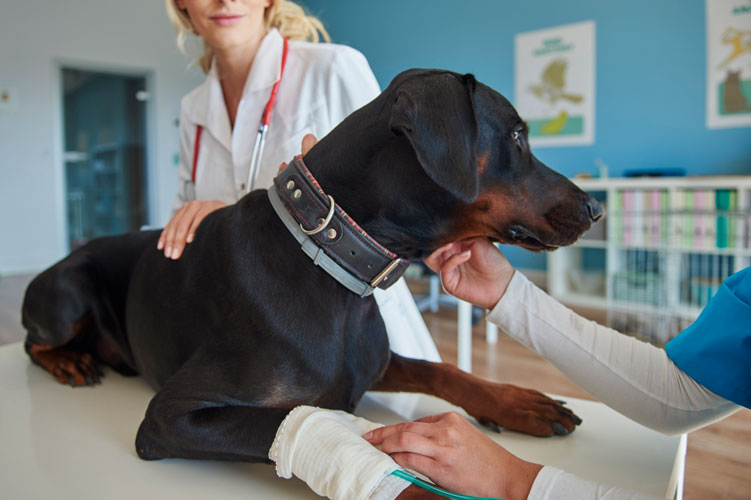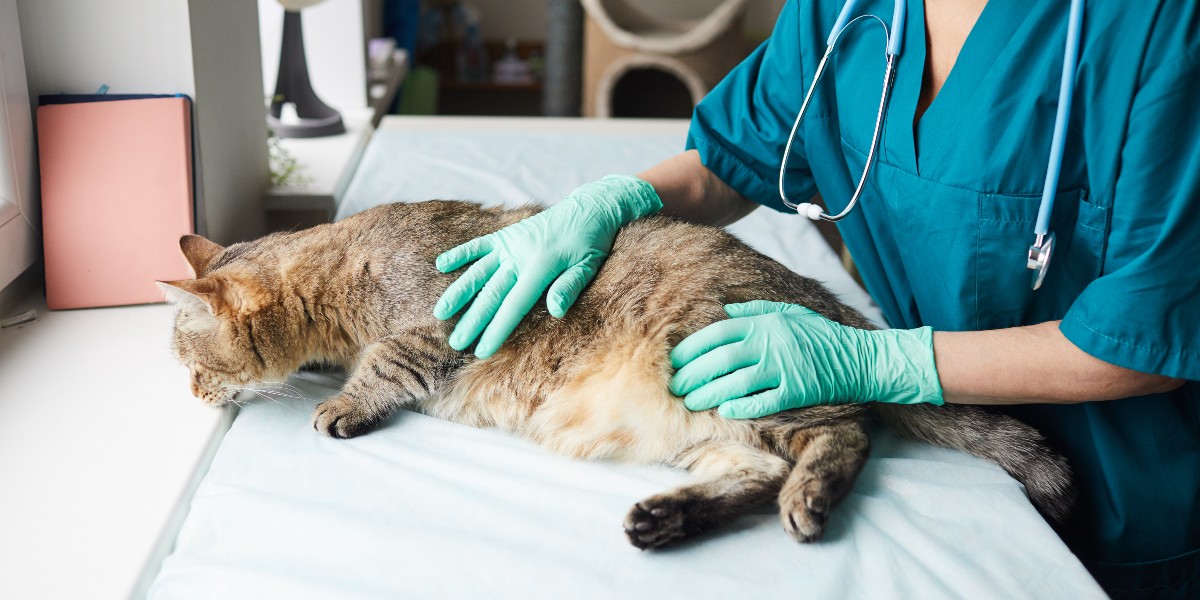Spay vs. Neuter: Understanding the Difference and Why Both Matter
As a Tucson pet owner, you’ve likely heard your veterinarian mention spaying or neutering your dog or cat. But do you understand the difference between these two standard surgical procedures? While both fall under the umbrella of pet sterilization, they’re actually quite different—and understanding these distinctions helps you make informed decisions about your pet’s reproductive health.
At Santa Cruz Veterinary Clinic, we believe in empowering pet owners with knowledge. Let’s break down everything you need to know about spaying vs. neutering, including the procedures themselves, health benefits, and why both are essential for responsible pet ownership in Tucson.
What Does Spaying Mean?
Spaying is a surgical procedure performed exclusively on female dogs and cats. Also called an ovariohysterectomy, spaying involves the complete removal of the ovaries, fallopian tubes, and uterus. This surgical sterilization makes it impossible for your female pet to become pregnant or experience heat cycles.
During the spay procedure, your veterinarian makes a small incision in the abdomen to access and remove the reproductive organs. The surgery is performed under general anesthesia to ensure your pet feels no pain or discomfort during the operation.
Common terminology for spaying includes:
- Ovariohysterectomy (medical term)
- Spaying (standard term)
- Fixing (colloquial term)
- Sterilization or desexing
What Does Neutering Mean?
Neutering refers to the surgical sterilization of male dogs and cats. Technically called castration or orchiectomy, neutering involves removing both testicles through a small incision near the scrotum. This prevents your male pet from reproducing and eliminates testosterone production.
The neutering procedure is generally more straightforward and less invasive than spaying because it doesn’t require entering the abdominal cavity. Male pets also tend to recover slightly faster from neutering surgery compared to females recovering from spaying surgery.
Common terminology for neutering includes:
- Castration (medical term)
- Neutering (standard term)
- Fixing (colloquial term)
- Orchiectomy (surgical term)
Key Differences: Spay vs Neuter at a Glance
| Aspect | Spaying (Female) | Neutering (Male) |
|---|---|---|
| Gender | Female dogs and cats | Male dogs and cats |
| Organs Removed | Ovaries, uterus, fallopian tubes | Testicles |
| Surgery Type | Abdominal (internal) | External (scrotal area) |
| Surgery Duration | 45-60 minutes | 20-30 minutes |
| Recovery Time | 10-14 days | 7-10 days |
| Complexity | More invasive | Less invasive |
Health Benefits of Spaying Female Pets
Spaying offers significant medical advantages for your female dog or cat. Female pets who are spayed before their first heat cycle have a dramatically reduced risk of mammary tumors—up to 99.5% reduction compared to unspayed females. This protective benefit decreases with each subsequent heat cycle your pet experiences.
Additional health benefits of spaying include:
Prevention of pyometra: This life-threatening uterine infection affects up to 25% of unspayed female dogs by age 10. Pyometra requires emergency surgery and can be fatal if untreated.
Elimination of ovarian and uterine cancer risk: By removing these organs, you completely eliminate the possibility of cancers developing in them.
No heat cycles: Spayed females won’t experience the mess, discomfort, or behavioral changes associated with being in heat every 6-8 months.
Longer lifespan: Studies show spayed female dogs live approximately 26% longer than their unspayed counterparts.
Health Benefits of Neutering Male Pets
Neutering provides equally important health advantages for male dogs and cats. Neutered males cannot develop testicular cancer, which affects approximately 7% of intact male dogs. The procedure also significantly reduces the risk of prostate problems, including prostatitis and benign prostatic hyperplasia.
Additional health benefits of neutering include:
Reduced roaming behavior: Intact males often wander searching for mates, increasing their risk of being hit by cars or getting into fights—both major causes of injury and death in Tucson pets.
Decreased aggression: Neutering reduces testosterone-driven aggression toward other animals and people. In Tucson specifically, this is crucial since 60-80% of dog bites involve intact males.
Prevention of marking behavior: Neutered male cats are up to 90% less likely to spray urine to mark territory inside your home.
Extended lifespan: Research indicates neutered male dogs live about 18% longer than intact males.
When Should You Spay or Neuter Your Pet?
The optimal timing for spaying and neutering depends on several factors, including your pet’s species, breed size, and individual health status. At Santa Cruz Veterinary Clinic, we work with each pet owner to determine the best timing for their specific situation.
For dogs:
- Small to medium breeds: 6-9 months of age
- Large breed dogs: May benefit from waiting until 12-18 months to support proper bone development
- Ideally, before the first heat cycle for maximum health benefits
For cats:
- Generally safe as early as 8 weeks old
- Most commonly performed between 4 and 6 months
- Cats reach sexual maturity quickly, so earlier intervention prevents unwanted behaviors
Our veterinary team can assess your pet’s individual needs and recommend the ideal surgical timing based on breed, health status, and lifestyle factors.
Why Both Procedures Matter for Tucson’s Pet Population
Understanding spay vs neuter isn’t just about your individual pet—it’s about our entire Tucson community. Pet overpopulation remains a serious problem, with approximately 6.5 million companion animals entering U.S. shelters annually. Many of these are the offspring of owned pets whose guardians didn’t spay or neuter.
In Pima County alone, thousands of dogs and cats enter animal shelters each year. By spaying female pets and neutering male pets, you’re directly contributing to population control and reducing the burden on local rescue organizations.
What to Expect: The Surgical Process
Both spaying and neutering are routine surgical procedures performed under general anesthesia. Here’s what happens:
Pre-surgery: Your pet will have a physical examination and possibly blood work to ensure they’re healthy for anesthesia. You’ll receive instructions to withhold food (typically 8-12 hours before surgery) while water is usually allowed until a few hours prior.
During surgery: Your pet receives pain medication and anesthesia, then is closely monitored throughout the procedure by trained veterinary technicians. The surgical site is carefully prepared and the procedure performed using sterile techniques.
Recovery: Most pets go home the same day. You’ll receive detailed aftercare instructions, pain medication, and an Elizabethan collar (cone) to prevent licking of the incision site.
Our affordable spay and neuter services include comprehensive pre-surgical assessment, the procedure itself, pain management, and post-operative care instructions.
Post-Surgery Care and Recovery
Proper aftercare ensures smooth healing and helps your pet return to normal activities quickly:
- Monitor the incision daily for signs of redness, swelling, discharge, or opening
- Limit activity for 10-14 days—no running, jumping, or rough play
- Use an e-collar consistently to prevent licking and chewing at the surgical site
- Administer pain medication as prescribed by your veterinarian
- Avoid bathing for at least 10-14 days after surgery
- Watch for complications like lethargy, loss of appetite, vomiting, or behavioral changes
Contact your Tucson veterinarian immediately if you notice any concerning symptoms during the recovery period.
Addressing Common Myths About Spaying and Neutering
Myth: “My pet will gain excessive weight after surgery.” Reality: Metabolism may slow slightly, but proper diet and exercise easily prevent weight gain. Obesity results from overfeeding and insufficient activity, not the surgery itself.
Myth: “My pet’s personality will change.” Reality: Your pet’s core personality remains intact. While hormone-driven behaviors like aggression, roaming, and marking decrease, your pet will still be playful, affectionate, and themselves.
Myth: “It’s better for my female dog to have one litter first.” Reality: No medical evidence supports this belief. In fact, spaying before the first heat provides maximum health protection against mammary tumors and uterine infections.
Myth: “My male dog needs to breed to be happy.” Reality: Intact males experience frustration and stress from hormonal drives. Neutered males are actually calmer and more content.
The Difference Between Spay and Neuter: Final Thoughts
Understanding the difference between spaying and neutering empowers you to make the best reproductive health decisions for your Tucson pet. Spaying prevents pregnancy and heat cycles in female dogs and cats, while neutering prevents reproduction in males—but both procedures offer tremendous health and behavioral benefits that extend far beyond population control.
At Santa Cruz Veterinary Clinic, we’re committed to providing affordable, high-quality spay and neuter services to the Tucson community. Our experienced veterinary team uses modern surgical techniques and comprehensive pain management to ensure your pet’s safety and comfort throughout the entire process.
Ready to schedule your pet’s spay or neuter surgery? Contact Santa Cruz Veterinary Clinic at (520) 889-9643 or visit our services page to learn more about our affordable sterilization options. Together, we can ensure your pet lives a longer, healthier life while helping control Tucson’s pet population.



 Owning a pet comes with responsibilities. And vaccination and spaying/neutering are the first and foremost of them.
Owning a pet comes with responsibilities. And vaccination and spaying/neutering are the first and foremost of them. Here are the
Here are the  Pre-Anesthetic Bloodwork
Pre-Anesthetic Bloodwork Your pet’s health is important. In Tucson,
Your pet’s health is important. In Tucson,  Cats are furry little creatures that bring warmth and joy to the heart. For some people, the more, the merrier. For those, having just one to call their own is sufficient. But, regardless of your preference for quantity, cats are animals, and they breed. If you’re someone who wants to enjoy the company of your cat only, look out for unwanted pregnancies.
Cats are furry little creatures that bring warmth and joy to the heart. For some people, the more, the merrier. For those, having just one to call their own is sufficient. But, regardless of your preference for quantity, cats are animals, and they breed. If you’re someone who wants to enjoy the company of your cat only, look out for unwanted pregnancies. TLDR: spaying your dog early on reduces the odds of them de eloping uterine diseases. A reduction in breast tumors also occurs after spaying. Spaying is a process that removes the female reproductive organs. Doing so removes the odds of you having to care for accidental offspring. Spaying only takes a few hours, and you can often get your dog back the same day.
TLDR: spaying your dog early on reduces the odds of them de eloping uterine diseases. A reduction in breast tumors also occurs after spaying. Spaying is a process that removes the female reproductive organs. Doing so removes the odds of you having to care for accidental offspring. Spaying only takes a few hours, and you can often get your dog back the same day. TLDR: to help your dog recover as comfortable as possible after being spayed, you need to do a few key things. Make sure you have enough food and water for your dog so that they will be able to replenish their vital nutrients and fluids. You also want to make sure that your dog has a quiet place that is free of any small children or other pets so that they can recover uninterrupted.
TLDR: to help your dog recover as comfortable as possible after being spayed, you need to do a few key things. Make sure you have enough food and water for your dog so that they will be able to replenish their vital nutrients and fluids. You also want to make sure that your dog has a quiet place that is free of any small children or other pets so that they can recover uninterrupted. TLDR: spaying your female dog will remove her uterus and ovaries, resulting in her inability to have any new babies. Dog owners commonly get their dogs spayed to avoid unexpected pregnancy while also neutralizing their behavior overall. The best age to get your female dog spayed is about four to six months. By spaying your dog at an early age, you will significantly reduce the odds of breast cancer development.
TLDR: spaying your female dog will remove her uterus and ovaries, resulting in her inability to have any new babies. Dog owners commonly get their dogs spayed to avoid unexpected pregnancy while also neutralizing their behavior overall. The best age to get your female dog spayed is about four to six months. By spaying your dog at an early age, you will significantly reduce the odds of breast cancer development. TLDR: Neutering, your male dog, has several benefits, such as reducing the likelihood of developing various canine cancers and prostate disease. Neutering is a reasonably safe process; however, you can expect sharp changes in your dog’s attitude right when you bring them home from the procedure. These side effects can range from increased aggression, depression, anxiety, or even clinginess; however, they only last for a short amount of time.
TLDR: Neutering, your male dog, has several benefits, such as reducing the likelihood of developing various canine cancers and prostate disease. Neutering is a reasonably safe process; however, you can expect sharp changes in your dog’s attitude right when you bring them home from the procedure. These side effects can range from increased aggression, depression, anxiety, or even clinginess; however, they only last for a short amount of time.